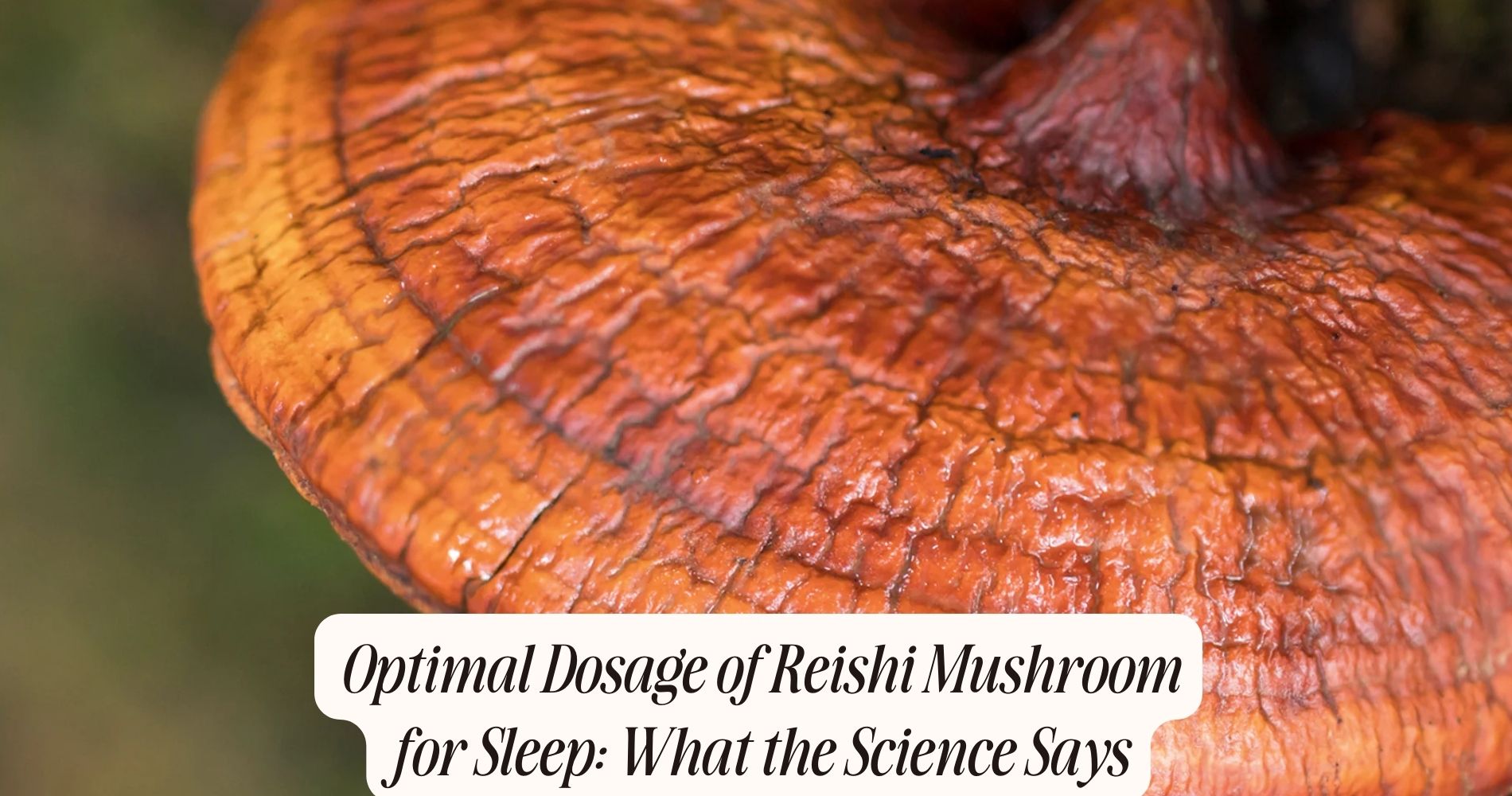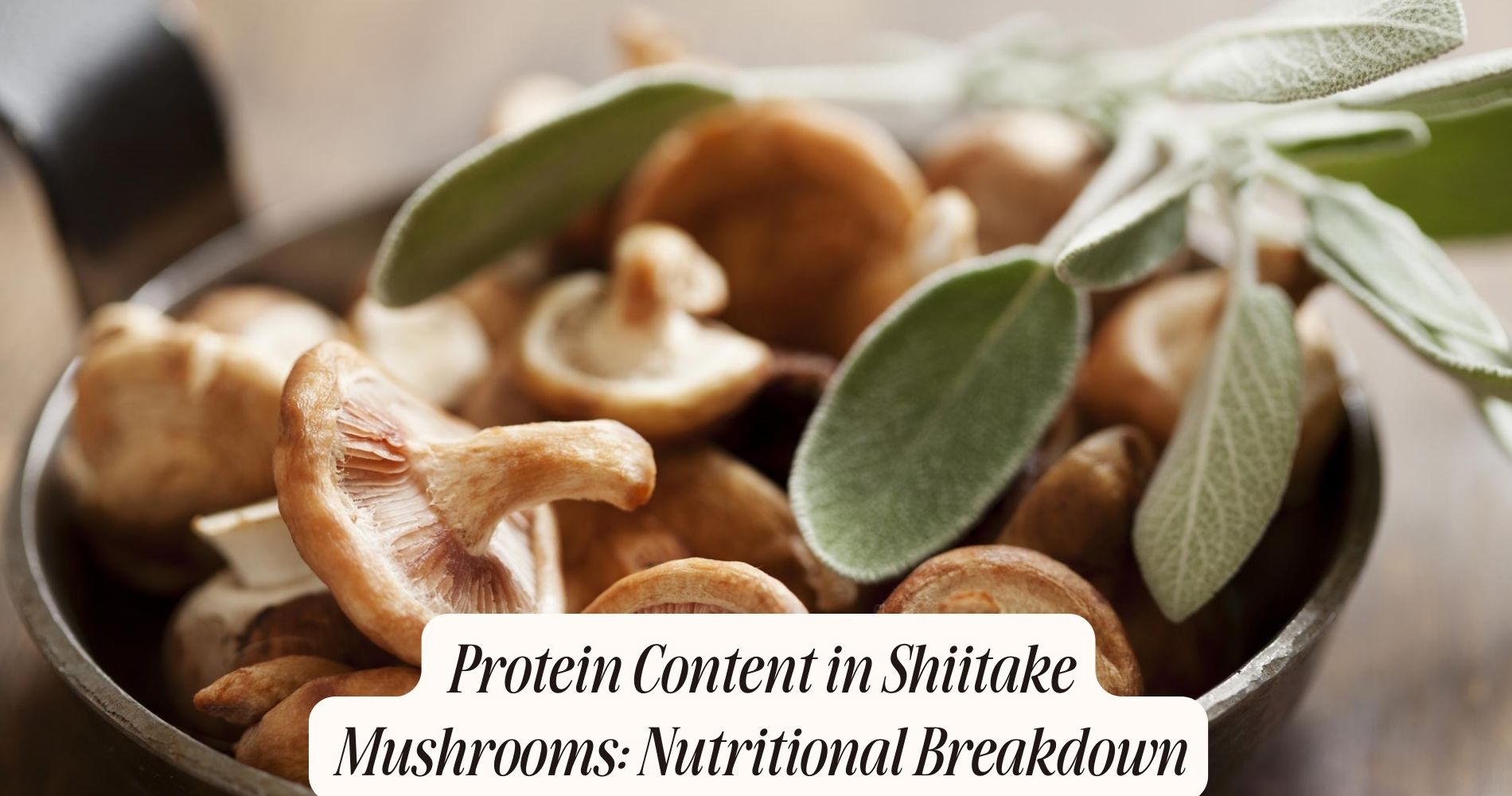
Optimal Dosage of Reishi Mushroom for Sleep: What the Science Says
Historical Use of Reishi
For centuries, reishi mushrooms have been used in traditional Chinese medicine for their reputed health benefits, including promoting relaxation and improving sleep quality.
In traditional folklore, reishi, also known as Lingzhi, is often referred to as the 'mushroom of immortality' due to its wide-ranging health benefits. Ancient remedies frequently included reishi to enhance overall well-being, combat fatigue, and support better sleep patterns.

Historical texts, such as the 'Shen Nong Ben Cao Jing,' an ancient Chinese pharmacopoeia, document the use of reishi mushrooms in various elixirs aimed at enhancing life span and boosting vitality. Emperors and healers alike valued reishi for its calming properties, using it to alleviate stress and balance the body's natural rhythms.
You'd find these mushrooms prescribed not just for sleep, but also for improving mental clarity and boosting immunity.
In traditional Chinese practices, reishi was often brewed into teas or tinctures, making it accessible for everyday use. The historical emphasis on reishi's role in promoting relaxation and sleep underscores its longstanding reputation as a powerful, natural remedy.
Understanding these ancient practices can help you appreciate the depth of reishi's historical significance in promoting better sleep.
Reishi's Active Compounds
Reishi mushrooms contain several active compounds, including triterpenes, polysaccharides, and peptidoglycans, which contribute to their sleep-enhancing properties.
Triterpenes, specifically ganoderic acids, are a type of triterpenoid that have been shown to possess various health benefits. These compounds are known for their anti-inflammatory and immunomodulating effects, which can help create a more relaxed state conducive to sleep.
Polysaccharides, another key component, have strong antioxidant properties. These molecules can help reduce oxidative stress, which is often linked to sleep disturbances. By lowering oxidative stress, polysaccharides support a more balanced and restful sleep cycle.
Peptidoglycans play a role in modulating the immune system, potentially easing anxiety and promoting relaxation.
Reishi's triterpenoid content is particularly significant when considering its impact on sleep. Studies have shown that these triterpenes can influence the nervous system by interacting with specific receptors that regulate mood and stress. This interaction can help reduce anxiety, making it easier to fall and stay asleep.
Understanding the active compounds in Reishi mushrooms can help you appreciate their potential benefits for sleep, setting the stage for a deeper exploration into the scientific research surrounding effective dosages.

Scientific Research Overview
Building on the understanding of Reishi's active compounds, scientific research has investigated how these elements contribute to sleep quality and duration.
Historically, Reishi mushroom has held cultural significance in traditional Chinese medicine, where it's been revered for its calming and health-promoting properties. Researchers have explored these traditional applications to understand the biological mechanisms behind its effects.
Studies reveal that Reishi contains compounds like triterpenes and polysaccharides, which may impact the central nervous system. These elements are believed to reduce stress and promote relaxation, key factors for improving sleep. Scientific analyses have also noted Reishi's potential in modulating immune responses, which might indirectly affect sleep patterns by reducing inflammation and stress, two known disruptors of sleep.
Moreover, the mushroom's adaptogenic properties help the body manage stress better, potentially leading to more restful sleep. Traditional applications often involved the use of Reishi in teas or extracts, a practice supported by contemporary research that highlights its bioavailability in such forms.
Reishi and Sleep Studies
You'll find that multiple clinical trials have investigated Reishi mushroom's impact on sleep quality.
Researchers have examined various dosages to assess efficacy, often measuring outcomes with standardized sleep quality metrics.
These studies provide valuable insights into how Reishi might benefit those struggling with sleep issues.
Clinical Trials Overview
In recent years, numerous clinical trials have investigated the effects of Reishi mushroom on sleep quality and duration, providing a wealth of data for review. These studies typically employ rigorous methodologies, including the use of placebo effect controls and randomized control groups, to guarantee the reliability of their findings.
For instance, one double-blind, placebo-controlled study found that participants who consumed Reishi extract reported significant improvements in sleep quality compared to those in the placebo group. Another study used polysomnography, a detailed sleep study, to objectively measure sleep parameters. The results indicated that Reishi supplementation led to increased total sleep time and improved sleep efficiency, with minimal side effects. Participants in control groups consistently showed less pronounced improvements, reinforcing the specific benefits of Reishi.
Additionally, meta-analyses of multiple clinical trials provide a broader perspective, confirming that Reishi's impact on sleep isn't due to the placebo effect. These analyses compare outcomes across various studies, revealing consistent trends in improved sleep quality and reduced time to fall asleep.
Dosage and Efficacy
Finding the ideal dosage of Reishi mushroom is essential for maximizing its efficacy in enhancing sleep quality and duration. Studies suggest that consuming between 1.5 to 5 grams of Reishi extract daily can lead to significant improvements in sleep. However, individual responses can vary, and some people may need to adjust the dosage to find what works best for them.
Timing also plays an important role. Research indicates that taking Reishi approximately one hour before bedtime can optimize its sleep-inducing effects. This timing allows the bioactive compounds to take effect as you prepare for sleep.

It's important to take into account the placebo effect when evaluating Reishi's efficacy. In controlled trials, participants receiving a placebo sometimes report improved sleep, highlighting the psychological component of sleep enhancement. Hence, it's crucial to rely on objective measures and well-designed studies to ascertain Reishi's true benefits.
Sleep Quality Metrics
Numerous scientific studies have employed various sleep quality metrics to evaluate the effectiveness of Reishi mushroom in improving sleep. Researchers often use sleep tracking devices to gather objective data on sleep duration, latency, and efficiency. These devices can provide detailed insights into how Reishi affects different aspects of sleep, such as the time it takes to fall asleep and the total amount of restful sleep achieved.
Another key metric frequently analyzed is insomnia severity. The Insomnia Severity Index (ISI) is a common tool used in these studies. It includes questions about sleep satisfaction, daily functioning, and the extent of sleep-related distress. Participants usually complete the ISI before and after Reishi supplementation, allowing researchers to measure any changes in insomnia severity.
Polysomnography, a detailed sleep study, is also sometimes used to capture a wide range of sleep parameters. This method records brain waves, oxygen levels, heart rate, and breathing patterns, offering a holistic view of sleep quality. By employing these thorough metrics, researchers aim to provide an objective assessment of how Reishi mushroom impacts sleep, making the findings more reliable and actionable for those considering Reishi as a sleep aid.
Expert Dosage Recommendations
Experts commonly recommend a standard daily intake of 1-2 grams of reishi mushroom extract for promoting better sleep.
You should start with the lower end of this range and adjust your dosage based on your body's tolerance and response.
Monitoring any side effects and consulting with a healthcare provider can help you find the best dose for your needs.
Standard Daily Intake
When determining the standard daily intake of Reishi mushroom for sleep, it's important to take into account expert dosage recommendations, which typically range from 1.5 to 9 grams of dried mushroom or its equivalent extract. This range reflects the variability in individual responses and the diversity in Reishi mushroom products available on the market.
Standardization challenges often arise because the active compounds in Reishi—triterpenes and polysaccharides—can vary greatly between different preparations. Bioavailability issues further complicate establishing a standard dosage. The body's ability to absorb and utilize these compounds can differ based on the form of Reishi you consume, whether it's a dried mushroom, powder, or extract.
For example, extracts generally offer better bioavailability because they're more concentrated and broken down into easily absorbed forms. Experts suggest starting with a lower dose, such as 1.5 grams, to assess your body's response and gradually increasing the dosage if needed.
Always make sure that the Reishi product you choose has undergone rigorous testing for quality and potency. Consistency in product quality is essential to achieving the desired sleep-enhancing effects. By adhering to these guidelines, you can better navigate the complexities of Reishi supplementation for sleep.
Adjusting for Tolerance
Consistently monitoring your body's response to Reishi mushroom is crucial for adjusting the dosage to guarantee maximum sleep benefits. Individual variance plays a significant role in how different people react to Reishi. While one person might experience improved sleep with a standard dosage, another might require a higher or lower amount.
Start with a low dose, typically around 1 gram per day, and observe any changes in sleep quality over a week.
If you don't notice significant improvements, consider dosage escalation. Increase your intake by small increments, such as 0.5 grams, and monitor your body's response for another week. Keep a sleep journal to track any changes in sleep duration, quality, and any side effects. This meticulous approach ensures you find the most effective dose tailored to your needs.

Expert recommendations emphasize the importance of gradual adjustments rather than making large jumps. Abrupt changes can disrupt your sleep patterns and make it difficult to determine the best dose.
Factors Affecting Dosage
Your ideal dosage of reishi mushroom for sleep can depend on several factors including your age, weight, overall health, and specific sleep issues.
Individual metabolism plays a significant role in determining how effectively your body processes and absorbs reishi's active compounds. If you have a fast metabolism, you may require a higher dose to achieve the desired effects. Conversely, those with a slower metabolism might find a lower dose more effective.
Underlying conditions such as chronic stress, anxiety, or hormonal imbalances can also influence the best dosage. For instance, if you suffer from anxiety, a higher dose might be necessary to experience reishi's calming effects. On the other hand, mild sleep disturbances may respond well to a lower dose.
Age and weight are additional factors that impact dosage. Older adults may need a lower dose due to slower metabolic rates and increased sensitivity to supplements. Individuals with a higher body weight might require a larger dose to achieve the same benefits.
Overall health status should also be considered. Those with compromised immune systems or other health issues should consult a healthcare professional to determine a safe and effective dosage tailored to their specific needs.
Potential Side Effects
While considering the various forms of Reishi supplements for sleep enhancement, it's also important to be aware of potential side effects that may accompany their use. Reishi mushroom, though generally well-tolerated, can cause some individuals to experience allergic reactions. Symptoms of an allergic reaction might include skin rashes, itching, or swelling, and in severe cases, difficulty breathing. If you notice any of these symptoms, it's critical to stop using the supplement immediately and consult a healthcare professional.
Gastrointestinal issues are another potential side effect. Some people report experiencing stomach upset, nausea, or diarrhea after consuming Reishi supplements. These gastrointestinal issues can vary in intensity from mild discomfort to more severe disturbances. If you find that these symptoms persist or worsen, it may be wise to reduce the dosage or discontinue use altogether.
Additionally, there have been reports of other minor side effects such as dry mouth, dizziness, and nosebleeds. It's important to monitor how your body responds to Reishi and make adjustments as necessary. Ensuring you're aware of these potential side effects can help you make an informed decision about incorporating Reishi into your sleep routine.
Enhance Your Wellness with Well Gummies
As you explore the optimal reishi mushroom dosage for sleep, consider enhancing your daily wellness routine with Well Gummies' 10-IN-1 MUSHROOM GUMMIES. These gummies not only include reishi mushrooms, known for their sleep-enhancing properties, but also a blend of nine other functional mushrooms. This convenient, gum chew form makes it easy to consume your daily dose of mushrooms that support calmer energy, sharper focus, and robust immune function. The vegan gummies taste like fresh wild berries, offering a delicious way to fuel your brain and energize your body without any jitters or crashes. Try Well Gummies for a balanced body and a clear mind, all day, every day.
Frequently Asked Questions
Can Reishi Mushroom Be Combined With Other Sleep Aids?
Yes, you can combine reishi mushroom with other sleep aids. Studies suggest combination effects might provide synergistic benefits, enhancing overall sleep quality. Always consult with a healthcare professional to guarantee safety and efficacy.
How Long Does It Take to See Results With Reishi for Sleep?
You might see results with reishi for sleep within a few days to a few weeks. User experiences vary, and dosage variations play a significant role in how quickly you'll notice improvements in your sleep quality.
Are There Any Interactions Between Reishi and Common Medications?
You should be aware of potential medication interactions with reishi. It can affect blood pressure and blood-thinning medications. Always check drug compatibility with your healthcare provider before adding reishi to your regimen for safety.
Is Reishi Mushroom Safe to Use During Pregnancy?
During pregnancy, take precautions with reishi mushroom. There's limited research on its safety and effects on fetal development. Consult your healthcare provider before use to confirm it doesn't pose any risks to your pregnancy.
What Is the Best Time of Day to Take Reishi for Sleep Benefits?
For ideal sleep benefits, take reishi as part of your evening routine. Incorporating it into your sleep hygiene promotes relaxation. Studies suggest consuming it 30-60 minutes before bedtime to maximize its calming effects.
Conclusion
In conclusion, research indicates that Reishi mushroom could support sleep, but ideal dosage varies.
Most studies suggest starting with 1.5 to 5 grams of dried Reishi or 1,000 to 2,000 milligrams of extract daily.
Factors like individual health, supplement form, and potential side effects should guide your dosage.
Always consult a healthcare professional before starting any new supplement to make sure it's safe and effective for your specific needs.




